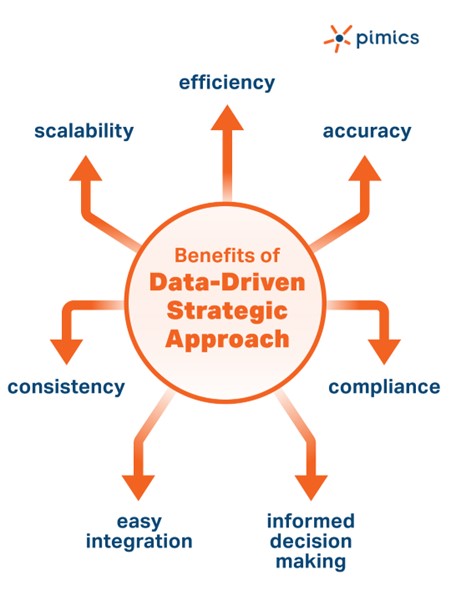Ideally, you would get both PIM and an e-commerce solution at once and then watch your business thrive. In real life though, you need to take into account many variables — especially your budget. When facing the decision to choose either PIM or e-commerce, companies tend to evaluate the latter as the more important, looking forward to the boost in sales.
Such an approach is nothing more than
a quick fix. Sure, an e-commerce solution will most likely increase your sales and attract new customers. But without PIM in the background, it may trap you in a
vicious circle of manual product data management for years to come, wasting both staff and financial resources. That’s why sorting out your product data first is a more
strategic & business-savvy approach.
The Allure of E-commerce
E-commerce platforms are often perceived as a quick way to boost both your market presence and your sales. However tempting it may be to jump straight into building an online storefront, envisioning a bustling hub of digital transactions, we recommend to stop and assess your product data first. Effective product data management is a fundamental aspect of digital commerce.
When managing a portfolio of up to 100 products, you can do without a PIM solution. But with hundreds (let alone thousands!) of products, their data management becomes extremely time-consuming and ineffective, leaving a lot of room for error.
The Hidden Costs of Manual Data Management
We’ve seen this many times: A company gets an e-commerce solution and manages product data in their ERP system, combined with extensive Excel spreadsheets and the backend of their e-commerce site. Data is dispersed across three places which means it also needs to be updated in three places. Most often, a person responsible for product data management does it manually or semi-manually — which means they spend their time doing routine tasks. Let alone the fact that if they leave the company or attempt to delegate their work, it‘s often a serious problem.
Manual management of product data also leaves a lot of room for error. Inaccuracies and inconsistencies in product data may lead to a poor customer experience and lost sales, especially in B2B sectors where purchase decisions heavily rely on detailed and accurate product information.
The Broader Scope of Product Data
Businesses often underestimate the power of product data. It's not just for e-commerce; but also for reports, for other sellers, and for manufacturing if the company is also manufacturer. High-end and B2B products require even more detailed and reliable data.
Moreover,
technical products (think automotive parts and building materials) often need to comply with
industry standards, such as
GS1 GDSN Global Data Synchronisation Network (bar codes) and
ETIM standards for technical products. Companies which can’t deliver their product data according to industry standards, are simply left out of competition.
In general, inaccurate or poorly managed product data can significantly impede a company's performance among competition, as well as the ability to operate more efficiently and make informed decisions.
The Pitfall of Post-E-commerce PIM Implementation
Many companies realise the need for a PIM solution only after implementing an e-commerce platform. That often comes at a cost: their solution is not optimised for integration with a PIM system. This leads to additional costs and complexities in revamping or sometimes even replacing the e-commerce platform.

Why Data Should Lead the Way
Here's our advice: start with your data. It makes the most sense in today’s data driven business world.
Sorting out your product information management first and foremost is the most strategic approach. A robust PIM solution streamlines data management across all channels and ensures data consistency and accuracy. It provides a solid foundation upon which to build your e-commerce presence.
Investing in PIM first comes with these long-term benefits:
- Scalability: As your product range grows, so does the complexity of managing it. A PIM system scales with your business, making it easier to manage larger product catalogues.
- Efficiency: Automated data management saves time and resources, allowing staff to focus on more strategic tasks.
- Accuracy and consistency: With a PIM solution, your product data is accurate and consistent across all channels, enhancing customer trust and satisfaction.
- Compliance: Conforming to industry standards gets easier with a PIM solution as advanced systems are in line with the most frequent industry standards and/or set to integrate with them.
- Better integration: A PIM system can integrate more seamlessly with an e-commerce platform, providing a smoother transition and better overall functionality.
- Informed decision making: Accurate data leads to better business insights and decisions, particularly in product development and marketing strategies.
PIM-first Approach as the Foundation for Your Business
In summary, while e-commerce platforms are essential for digital sales and presence, the backbone of successful digital commerce is robust product data management. An e-commerce solution’s front end will most likely become dated in about three years, while a PIM solution is typically expected to last 6 years. Which is, by the way, the reason why headless architecture is so popular nowadays— it enables you to change the front end while keeping the back end intact. A savvy strategy, into which a lasting PIM solution fits perfectly.
Investing in a PIM solution first lays a solid foundation for e-commerce and ensures long-term operational efficiency, scalability, and customer satisfaction. Remember: in the world of digital commerce, data isn't just a king; it makes the entire kingdom!